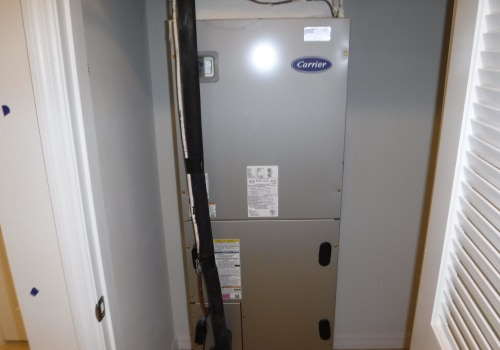You should replace your air conditioner filters approximately every 90 days, if you don't have allergies. However, AC professionals generally recommend changing them every 45 days for maximum efficiency. It is important to use the correct size and type of air filter when replacing them. Most air filter manufacturers and HVAC companies suggest changing the air filter every 90 days or 3 months.
This may vary depending on the location of your home, if you have pets, and the age of your system and equipment. If you have pets in the house, it is recommended to change the filter every 60 days or 2 months. For households with multiple pets or people with allergies or respiratory conditions, it is best to change the filter every 20 to 45 days. Vacation homes or vacant homes that don't get much use can usually wait to change filters every 9-12 months. The more you use your home, the more often you need to change the air filter.
To determine how often you need to change your air filter, visually inspect it every month. After a few months, you will get an idea of how quickly it gets dirty. You should re-evaluate if you have a new pet or if the outdoor air quality has been poor. A general rule of thumb for pleated air filters (such as those manufactured by FilterBuy) is to replace the filter every 90 days. As the filter traps more dirt, dust and allergens from the air, its efficiency decreases.
For a little-used vacation home, you could get away with changing filters once a year. However, for a typical suburban home, it is best to change filters at least every 90 days. But that time frame changes depending on additional factors such as location, pets, and age of system and equipment. Some manufacturers recommend replacing air filters every 30 to 60 or 90 days, depending on the type of air filter. Filters with higher MERV ratings trap small particles more effectively than filters with lower MERV ratings.
Households with a pet should generally replace filters after two months; those with more than one pet may need to replace the filter once a month. Not replacing the air filter accordingly can cause the homeowner's energy bill to rise, as clogged filters cause the system to work harder when air circulates. The Minimum Efficiency Report Value (MERV) rating for an air filter measures how effectively the filter prevents dust and other contaminants from passing through the filter into the air stream. If the dirty air filter is completely covered with dust and dirt, it is a good idea to change it even if it has not reached the end of its recommended life. An air filter manufacturer will generally explain how often you should replace the air filter in their installation instructions. At this time, it is recommended that air filters be replaced with quality replacements that can filter out common allergens, including pollen.



